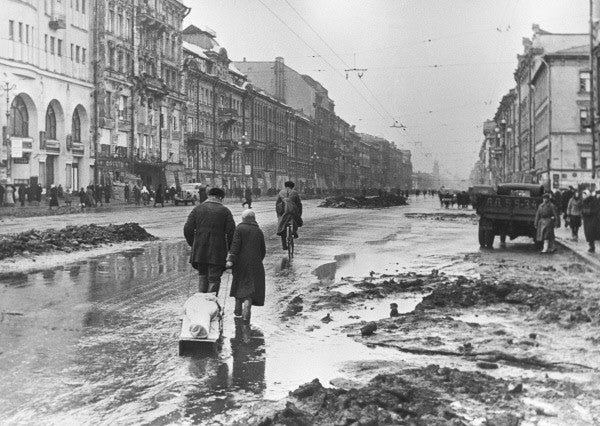Historian uncovers diaries from Nazi siege of Leningrad documenting cannibalism during famine
Newly discovered diaries reveal horror of siege

A historian has unearthed previously unseen diaries documenting the fall of Leningrad and the consequential famine that ripped across the Russian city, plunging many of its residents into cannibalism.
The German army blockade of the city ran from September 1941 to January 1944 – lasting 872 days and causing the deaths of more than 800,000 people.
Professor Alexis Peri from Boston University discovered the diaries during the course of his research in Russian archives, and first-hand accounts provide a fresh view of the level of deprivation that faced many people.
The German army surrounded the city just 11 weeks after invading Russia, and what followed was a slow spiral into starvation.
Dr Peri collated the diary entries and published them in a book called The War Within: Diaries From the Siege of Leningrad.
One of the earliest signs of starvation was that both boys and girls started growing facial hair. Adults suffered physiological changes too, with men becoming impotent and women’s menstrual cycles either becoming irregular or stopping altogether. Ration cards, given by the struggling Soviet government offered only meagre supplies, forcing many parents to abandon their children and others to steal from the dead.
One young girl wrote that her father was so hungry he ate their dog. And it wasn’t just animals. Approximately 1,500 Leningraders were arrested for cannibalism during this time.
According to historian Guy Walters, the Russian language distinguishes between two types: the first type refers to eating the flesh of a corpse – someone already dead. The second type refers to eating a human being one has killed for the express purpose of nourishment. Not only did both occur in Leningrad, but there were parents who fed their children human flesh.
A diary entry by Alexandra Mironova tells of a family called the Kaganovs, who engaged in cannibalism. Though she tried to take the children to an orphanage, they “did not want to leave their uncooked meat”.
Dr Petri found that, despite people being malnourished, both men and women engaged in prostitution, selling themselves for food.
Join our commenting forum
Join thought-provoking conversations, follow other Independent readers and see their replies
Comments
Bookmark popover
Removed from bookmarks